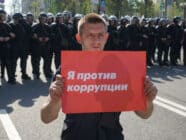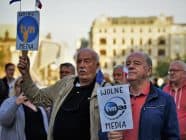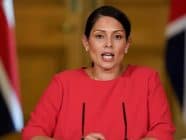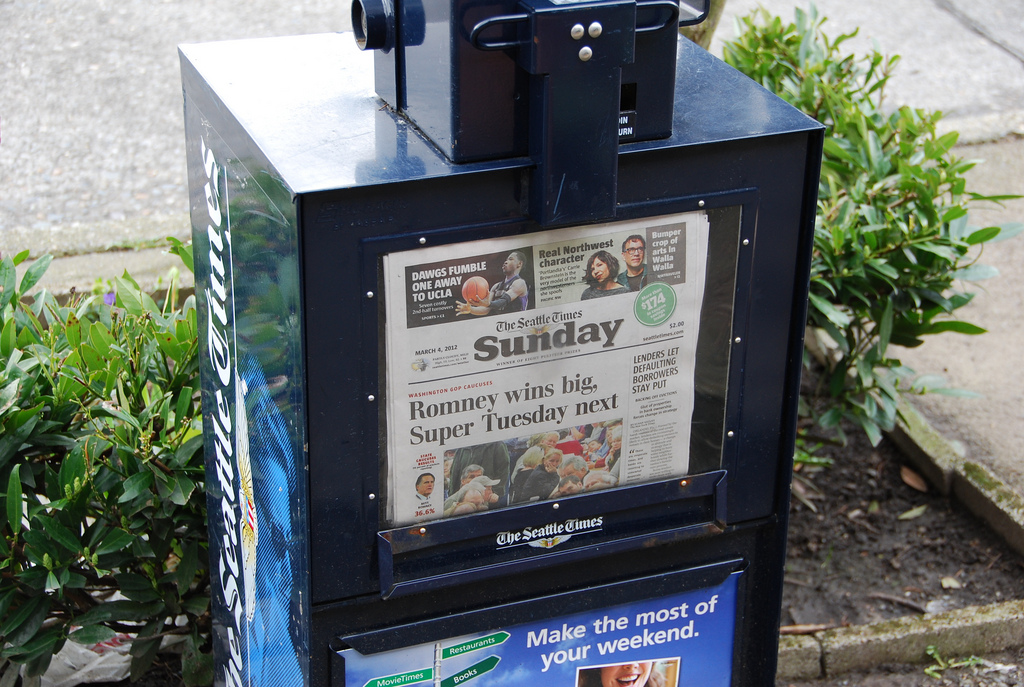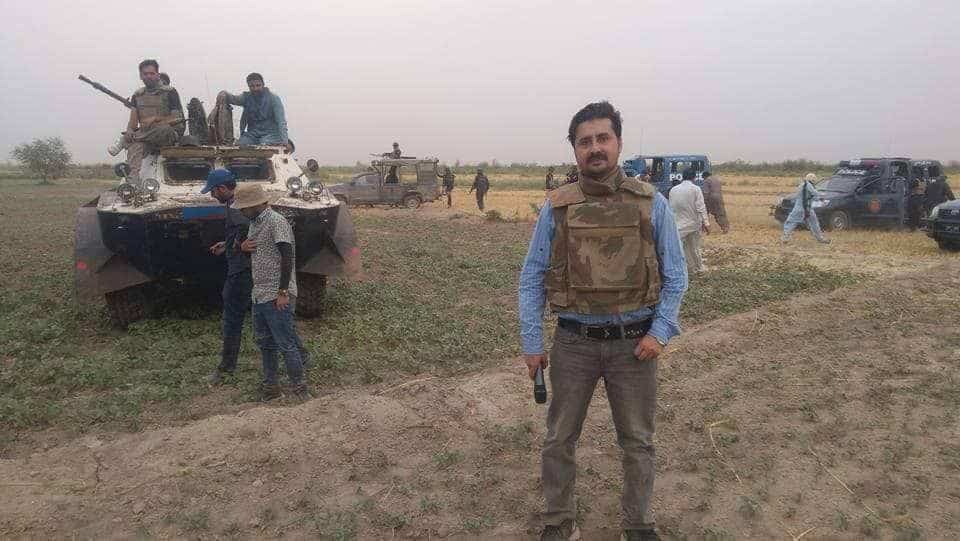
Saddam Tufail Hashmi during a reporting trip to the Katcha region in the Sindh province, Pakistan.
Pakistan is said to be one of the most dangerous countries in the world for journalists. Reporters Without Borders states that “the Pakistani Media are regarded as among the most vibrant in Asia but they are targeted by extremist groups, Islamist organization and the feared intelligence agencies”.
According to RSF, even though the number of journalists being killed has decreased over the last years, deathly attacks against journalists are still happening every year and often remain unpunished. In 2018 only, three journalists have been murdered. Reporters often get caught in the crossfire between different conflicting groups and suffer from lacking security precautions as well as precarious economic conditions.
Press freedom is also not the norm, as recent events demonstrate. At the beginning of November, the anti-terror unit of the Pakistani police stormed the Karachi Press Club in civil clothing. Without showing an official permit, they searched the rooms. As the English-speaking Pakistani newspaper Dawn states, the authorities afterwards claimed that the attackers did not know that they were in the rooms of the Karachi Press Club. The Press Club published a statement stressing that it “strongly condemns the contention that the (…) raid was a result of a “misunderstanding”. The Human Rights Commission of Pakistan took this event as a hint that there has been “little – if any – improvement in the state of press freedom since the new government took office”, as the commission states on their website. Only a few days later, senior journalist Nasarulah Chaudry was arrested at home and questioned in front of a terrorism court. He was accused of owning “proscribed literature”. NGOs, however, assume that the arrest might be used to justify the raid on the Press Club.
In an interview with the European Journalism Observatory, Pakistani journalist Saddam Tufail Hashmi explains what makes journalists’ work and life difficult in Pakistan and why he and his colleagues decide to speak up despite the risks. His motto: “Some people like easy tasks. I like hard tasks. If I want to work with sincerity in my profession, I have to do it like this.”
EJO: In your talks and reporting you highlight the difficulties and dangers that journalists face in Pakistan. You have been injured while doing your job. What motivates you and your colleagues to work as journalists despite the risks connected with this profession?
STH: In Pakistan, those who join the media do it out of passion. Passion first, profession second. We journalists always think out of the box and beyond the limits. We work for the betterment of society, but sometimes we face problems such as loss of reality. I wish that slowly and gradually problems will be resolved. We are still energised, we are not demoralised. We want to do good things with our work.
I am against any kind of terrorism, I am against any kind of racism and any kind of crime. Our profession is about communication and if we can facilitate communication between different communities, this is good for humanity. I am trying to spread such thoughts in my work.
In general, what are the challenges affecting your daily work as a journalist?
There are banned outfits, criminal groups, terrorist groups, smugglers and mafias which make our work difficult. In addition, there is a conflict between Pakistan and India, which is still affecting us today. Similarly, we are affected by the war between Russia and Afghanistan. Pakistan has accepted refugees from Afghanistan who have a different mentality. While many of them are certainly good people, the opening of the borders also led to an increase in the smuggling of ammunition – especially AK47 – and drugs. This is causing problems until this day and it strengthened terrorism.
These days, the case of Asia Bibi is dominating much of the reporting about Pakistan in European media…
We all have to respect laws and courts all over the world. In the case of Asia Bibi, I demand justice. The government should not accept to be pressured by any group.
In addition, there are still news about terrorist attacks, for example during the elections of the Prime Minister in July 2018 when 30 people were killed in an electoral office. How do journalists in Pakistan operate to cover sensitive issues such as terrorism or religious conflicts and why do journalists become targets in these conflicts?
We journalists need to expose ourselves; that is why we are in danger. I think Pakistan is one of the most dangerous countries for journalists. So many of my friends became martyrs in their job: Cameramen, reporters, other journalists. We worked together. And if you see a person you know and he dies in a bomb attack, or terror attack, it increases the pressure. We are humans with hearts and we feel the pain. In our situation, we get pressure from all sides. Many groups are against us. Personally, I condemn the attack against the Karachi Press Club and demand the immediate release of journalist Nasarullah Chaudhry.
Have you been threatened because of your work?
Yes, many times. In the past, I have covered many critical topics, for example, I have revealed and exposed corrupt police officers in my reporting.
Another example: Before I came to the United States, I covered the issue of Gilgit-Baltistan. Pakistan is now mostly cleared from Taliban terrorists. But in Gilgit-Baltistan, there is an area called Challas and in that area, there is a district named Diamer. It is known that a few Taliban terrorists are most likely hiding in a forest there. I exposed in my column at Express News that in the area, 15 girl schools have been fired at. Do you know what happened after I published this column? Somebody – I do not know who – launched a campaign against me on social media.
The matter of the campaign is not that I am against terrorism, instead, they blame me for destroying tourism in Gilgit-Baltistan by suggesting the Taliban might still be in the area. They use very abusive language against me. They also threaten me in telephone calls, messages and by other means and say that they will kill me. They called my office and other people, too.
How do you and your colleagues protect yourselves?
Some people use pseudonyms, but they are a minority. If I say the truth, why do I need to hide my name? If I am afraid, why am I in this profession in the first place?
There is also security training and I have participated in a HEAT (Hostile Environment Awareness, note of the editor), but in the end, training is just training. If you or your family are walking in the street and someone shoots at you from a motorbike or a car, how can you protect yourself? I do not have any gun or a security guard. I have been injured and threatened, as well. My head has been injured five times. A muscle in my arm is damaged. A good journalist faces so many pressures and problems, their lives are always at stake. Some people choose to leave the country because of these dangers. I will go back but it is a dangerous situation for me.
You are also criticising that media managers do not pay enough attention to security precautions for their staff.
They do not care about us. They want breaking news as soon as possible. There was one instance where I wasn’t allowed to return to the newsroom to get a bulletproof vest before I had to report a shooting – because I shouldn’t be slower than our competitors.
But to get good work, they should also care for our lives and respect ethical standards. However, the undeserving middle management, who enjoy high wages and good facilities, are not interested in the security of the journalists. But we are the ones who were on location. We saw everything, we can write and report. We are the backbone of any TV or radio channel. But the owners neglect us, they neglect our lives. We play an important role in our society and we deserve a lot more.
Which social and economic status do journalists have in Pakistan?
Low wages are a big issue. There is a literacy problem in my country but most of the journalists are very well educated and belong to educated families. All over the world, when journalists cover war zones, media outlets usually pay them very well. Not in my country: if we cover war zones or conflicts our wage is low. Our lives are expensive, but TV stations and newspapers are not good paymasters. Our lives are at stake 24 hours because we expose ourselves, so naturally, we think they should pay us more. It’s not that they couldn’t afford it. Pakistan’s media outlets earn proper money through advertising, but they also have the mindset of businessmen and try to save money. This is why so little ends up in the pockets of the journalists.
Another problem is the workload. Journalists in Pakistan have a very high workload and there are many stories of reporters who die from heart attacks to due stress and overworking.
And then there is the issue of internal politics at broadcasting stations: People can get positions in the management even though they do not deserve them based on their professional abilities, simply by means of politics.
Are journalists sometimes instrumentalised by conflicting groups?
There are black sheep everywhere, but in my experience, journalists are usually good people who try to report properly what they see. People know that we work very hard. On the one hand, this is why journalists enjoy huge respect in society, but it also makes some people uncomfortable because they may report on sensitive issues. If journalists misuse their position, they are usually publicly exposed and lose their reputation.
When you teach young people who strive to become journalists in Pakistan, what advice do you give them for their future operations in the field?
When I teach my students, I find that the recommended books are not applicable for my region. Most of the books on journalism are from the US and the UK, but it is very important to remember that every region is different.
If you want to train students for your region you need to show them what is going on on the ground and how to deal with that. If I want to prepare my students properly, I need to share my own experiences, the “book in my mind”, so to speak.
Unfortunately, in Pakistan, most communication lecturers do not have professional experience as journalists. But journalism is a creative and practical field, so how do you want to teach students if you do not have personal experience? We do not live in a country where journalists can work freely. Consequently, the education of journalists needs to be adapted to context.
What made you become an activist for journalists’ rights and what benefit do you expect from spreading information about the situation in Pakistan to international audiences?
If international people write in favour of us, it makes everyone more thoughtful and. If they [oppressing forces, note of the editor] can stop our mouths from speaking out, this is it. Then things will never be good. But we have a pen, we have a voice and our voice matters, our pen matters – if we use them in a proper way.
Ultimately, publishers must take care of their employees, because the employees are not their slaves – just as journalists must be responsible and fulfil their duties. This message goes to media houses, to the government and to intelligence agencies: Journalists are intelligent, talented and hardworking people. They who work for the betterment of society and deserve respect. We journalists can spend only little time with our families and with our kids. We deserve proper security, facilities, wages and respect. This is our right.
If you liked this article you might also be interested in Free Media Are Not “The Enemy Of The People”.
Sign up for the EJO’s regular monthly newsletter or follow us on Facebook and Twitter.
Tags: conflict, Journalism, Pakistan, Press freedom, reporting, Threats to Journalists


